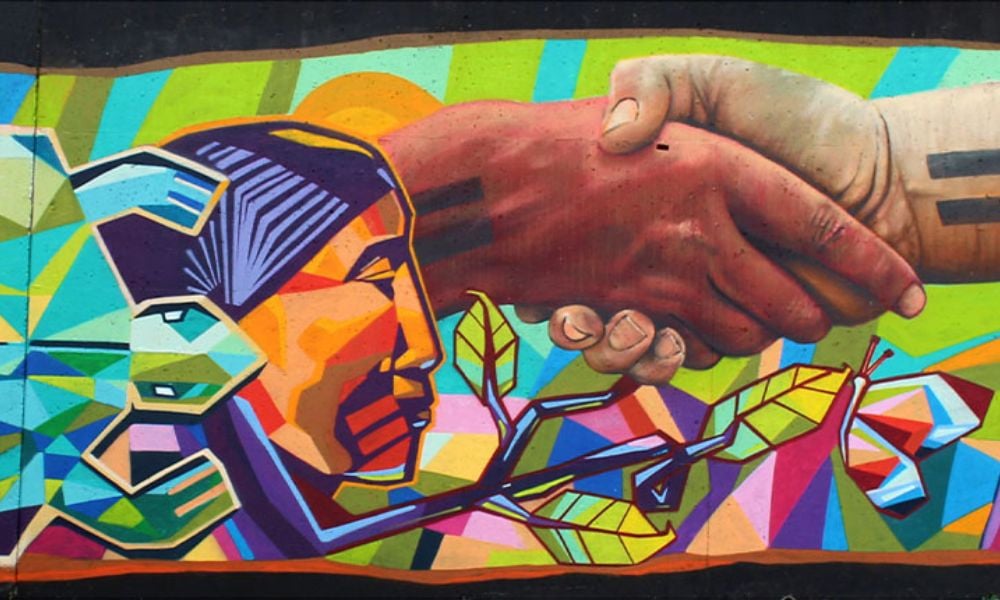Wilfrid Laurier's Gladue course goes beyond legislation, says Bryanne Smart

This article was created in partnership with Wilfrid Laurier University
Bryanne Smart has worked in Indigenous legal spaces for nearly ten years, beginning with what was then Aboriginal Legal Services of Toronto. As a Gladue caseworker and a Gladue writer, Smart became deeply committed to advocating for Indigenous people in the Canadian justice system.
“When systems have been designed to exclude that's a hard place to be,” Smart, an Indigenous woman from Six Nations of the Grand River, says. “My work consistently has been to ensure Indigenous voices are heard and Gladue is a great vehicle with which to do that.”
Within this work, Smart has come up against many misconceptions amongst those who work within the legal system about what Gladue is and how it operates in practice. She says all Canadians — but especially those who work with Indigenous populations within the legal system — should strive for deeper understanding.
Anybody can read s. 718.2 — but true education goes beyond legislation
Throughout her career, Smart has come up against many misconceptions amongst those who work within the legal system about what Gladue is and how it operates in practice. She says all Canadians — but especially those who work with Indigenous populations within the legal system — should strive for deeper understanding.
“Anybody can read s. 718.2 of the Criminal Code, but interpretation is subjective,” Smart says. “Grounding yourself in a solid understanding of what Gladue means, why it exists, how it was designed, and what are the historical patterns and impacts that led to it is different and more impactful than simply reading the law. There are a lot of opportunities for those in the legal system to keep learning: it doesn't stop.”
To drive that education further, two years ago Smart came aboard Wilfrid Laurier University as a Gladue Mentor for the Gladue Principles: Indigenous Peoples and the Canadian Justice System program. An asynchronous program offered in two parts totaling 20 weeks, it provides working professionals the flexibility they need to fit it into their busy schedule — a critical component of the core value of the course, which is to educate as many people involved in the criminal justice system as possible about the importance of Gladue.
With start dates on the 1st of every month from January to October, Smart works closely with a continuous stream of learners — from lawyers and police officers to court staff — as they gain a more fulsome understanding of the history of Indigenous people, its intersection with the law, and how that fed into the landmark Supreme Court of Canada decision, R. v. Gladue. The course, a 2022 Program Award Winner, lays it out well, Smart notes, because “it helps learners see that it's all connected — Gladue didn’t come out of nowhere. It came out of years and years of over-representation and systemic challenges.” The program also includes interviews with many different players in the criminal justice system to illustrate how Gladue is incorporated into those different positions.
Applicable Canada-wide and developed by Indigenous people, the program invites learners to grapple not only with the reality that the criminal justice system has been and continues to be systemically racist — as of January 2020, Canada’s Office of the Correctional Investigator announced that persons of Indigenous ancestry in federal custody surpassed 30%, despite only accounting for 4% of the general Canadian population — but with the fact that they likely have played a part in upholding the inequity through their own action or non-action.
A willingness to reflect and redirect
A highlight for Smart are the self-reflections participants complete at the end of the course — “Being reflective about this learning creates a depth of understanding that moves away from that surface-level discussion of what you might have heard your peers talk about when it comes to Gladue, and really understand all the parameters that make Gladue what it is: that's what this course does really well,” she notes — because not only do almost all of them report learning something new, many are also willing to admit what they thought they knew was wrong. She often sees lawyers who have been practicing for decades look at past situations and say they should have handled it differently, and that admission is a powerful one.
“People understand things differently from this course and it's not necessarily about Gladue specifically, but about the broader learning they’re able to take from the program,” Smart says, adding it changes how they see the clients they’re serving by underscoring the fact that they are human beings that aren’t always viewed as such, especially in settings like the legal system. “If you want to change spaces or create opportunities for people to thrive you must be aware, otherwise you’re upholding the status quo.”
Ultimately, it's everybody's responsibility to learn about what's happened in Canada “in the context of law, but also in the context of life,” Smart says, and she’s taken that responsibility to heart professionally and personally by continuously practices what she preaches.
“I never get tired of telling these stories: these are people's lives and experiences and they're not small, they're really big and they're important. You don't stop learning — I have been in this space a long time, but there are still things to uncover and I’m open to it. I’m so proud of that.”










